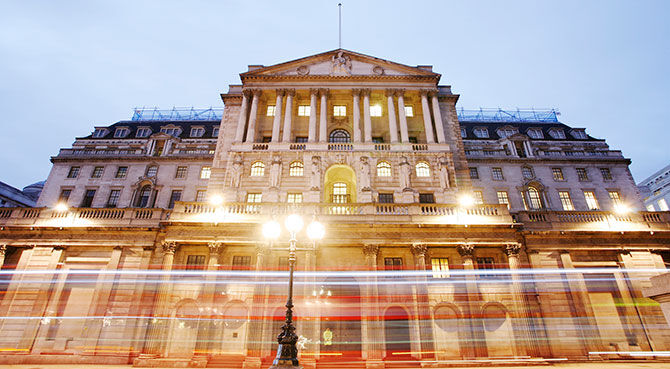Carney to explain why inflation running ahead of target
Increase in price of air travel and weak sterling responsible for pushing UK inflation to 3.1 per cent last month, as Consumer Price Index rises to highest point in six years.

Why is the Consumer Price Index on the rise?
The Office for National Statistics (ONS) said a main reason for the latest increase was a sharp rise in the price of air travel – part of a continuing, post-referendum trend brought about by the fall in the value of sterling.More important politically is that the CPI is now running at about 50 per cent higher than the average rate of people’s annual wage rises.And according to Andrew Sentance, senior economic adviser at PwC, there is little chance in the immediate future of pay catching up with inflation. “The fall in sterling since the Brexit vote continues to push up the prices of imported goods and the strength of the global economy is also contributing to upward pressure on food and energy prices,” he said.“We are probably close to the peak for inflation now, but it will only fall back gradually next year. That means price rises will continue to run ahead of pay growth in the first half of 2018 – continuing the squeeze on real incomes and consumer spending. That is likely to continue to act as a dampener on economic growth in the next few quarters.”Related stories:
- Latest research: Where in the world is cheapest for expats?
- Birmingham answers tech workers’ quality-of-life call
- Latest research: Where in the world is cheapest for expats?
UK inflation having impact on households
Financial Secretary to the Treasury Mel Stride said the government appreciated that Britons were suffering from rising inflation. “Inflation is expected to fall over the coming year, but I recognise families are feeling a squeeze now,” he said.“We are determined to help, which is why the Autumn Budget cut income tax, boosted basic pay by more than inflation and froze alcohol and fuel duties.”Will the Bank of England change interest rates in response?
Lucy O’Carroll, chief economist at Aberdeen Standard Investments, said the inflation rate was slightly higher than expected by economists, most of whom had expected to stay at three per cent.She added, “It’s quite possible that inflation is now close to its peak. But some of the latest surveys suggest that service sector costs and prices are rising. Given how dominant services are in the economy, this could feed through to inflation overall.“That means that further interest rate rises are definitely not off the table. The Bank of England has a tricky tightrope to walk. Too much inflation could threaten the Bank’s credibility and therefore its grip on the economy. But they need to keep consumer spending, the engine of the UK economy, chugging along too.“If inflation keeps creeping up, or remains elevated, then the chances of the engine sputtering rise incrementally.”Read more about current issues facing the UK service industry in the Winter issue of our magazine, coming soon.
For related news and features, visit our Brexit section. Look out for the launch of 2018's Relocate Awards, entry open in January.Relocate’s new Global Mobility Toolkit provides free information, practical advice and support for HR, global mobility managers and global teams operating overseas.
 Access hundreds of global services and suppliers in our Online Directory
Access hundreds of global services and suppliers in our Online Directory
©2025 Re:locate magazine, published by Profile Locations, Spray Hill, Hastings Road, Lamberhurst, Kent TN3 8JB. All rights reserved. This publication (or any part thereof) may not be reproduced in any form without the prior written permission of Profile Locations. Profile Locations accepts no liability for the accuracy of the contents or any opinions expressed herein.






































